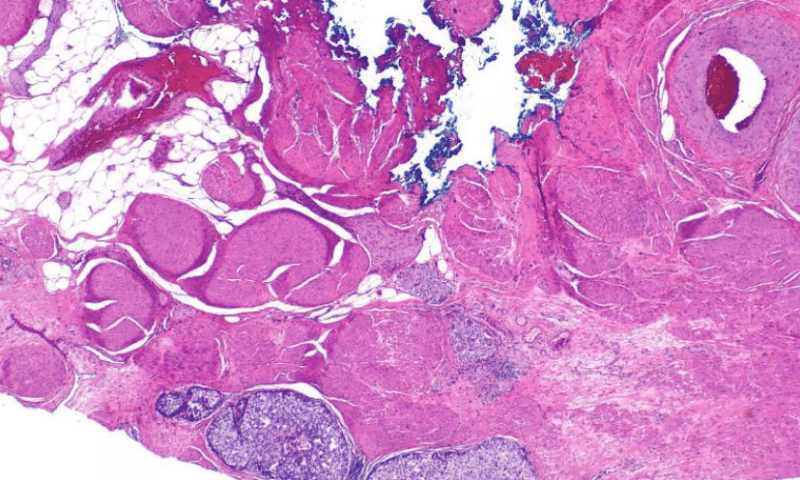Molecular biomarkers in a patient’s DNA can indicate a specific subtype of cancer or other disease, paving the way for more personalized, potentially more effective treatments. But sifting through the genome to find those indicators can be an arduous process, typically requiring additional tests and extensive genetic sequencing to complete.
A biomarker test for bladder cancer that’s currently under evaluation takes a more streamlined approach. Rather than forcing patients to wait days or even weeks for the results of a full sequencing of their tumors, the artificial-intelligence-powered screening tool simply analyzes standard biopsy slides to spot certain genetic alterations.
The test was developed by Janssen Research & Development, and the Johnson & Johnson subsidiary has tapped digital pathology powerhouse Paige to help bring it into pathology labs and clinical trial sites around the world.
The tool’s AI is trained to analyze pathology slides stained with hematoxylin and eosin—the most commonly used technique for examining tissue samples in routine diagnostics—that were collected from patients with advanced urothelial cancer.
It looks specifically for alterations in the fibroblast growth factor receptor, or FGFR, genes; studies cited by Paige and Janssen have found that up to 15% of people with advanced bladder cancer have alterations in their FGFR genes.
The companies noted that currently available FGFR molecular tests are rarely ordered and, when they are, can take weeks to return results. Janssen’s AI-powered screening tool, meanwhile, aims to churn out its completed analyses of previously collected and digitized H&E slides within an hour.
The test is already being used in some of Janssen’s clinical trials to look for genetic alterations in bladder cancer patients. It has been integrated into the cloud-based Paige Platform, which is meant to bring together all of a pathology lab’s hardware and software—including whole-slide scanners and clinical and lab information systems—in one place for easier slide analysis and data management.
The partners have two core goals in launching the test: Not only could it help make molecular biomarker testing more easily and widely accessible, but the results of those tests could also improve recruitment for clinical trials looking for patients with specific tumor mutations.
“With the global deployment of our Paige Platform underway, we will make our capability broadly available in support of the clinical development of targeted and other classes of therapeutic drugs and patient identification for future biomarker and drug development programs,” said Jill Stefanelli, Ph.D., Paige’s president and chief business officer.

